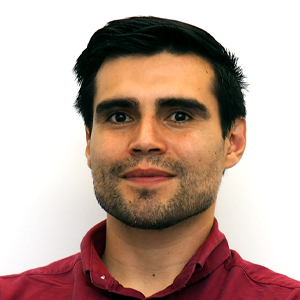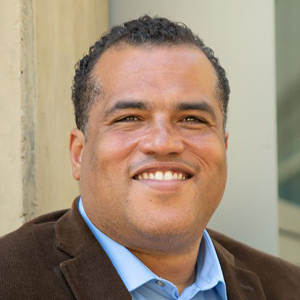
Our coolest superpower: Seeing all the atoms
Wouldn't it be great if we could just see all the atoms of all the molecules, any time we wanted?
If we were able to sample something — anything — and just tell what it's made of? Where all its atoms were? Which ones were connected or ready to react?
In about the span of a century, scientists have learned more about molecules and their components than we ever thought possible. In some cases, we can already pick up a bit of dust or a tiny droplet and see where the atoms of its resident molecules are. Or we can calculate predicted structures that are so accurate they can be used to predict function.
In old comic books, this kind of X-ray vision was the stuff of superheroes. Someday, in the not-too-distant future, we might all have it.
Submit an abstract
Abstract submission begins Sept. 14. If you submit by Oct. 12, you'll get a decision by Nov. 1. The regular submission deadline is Nov. 30. See the categories.
Join us for a glimpse into the challenges and opportunities of building that future, so we can all scrutinize, predict, build, target and react to all the molecules.
Keywords: Structure, cryo-electron microscopy, microcrystal electron diffraction, alpha fold, tomography, artificial intelligence.
Who should attend: Absolutely everyone should attend. Who doesn't want a superpower?
Theme song: “Mosaic” by Art Blakey and the Jazz Messengers
This session is literally powered by electrons and photons.
New frontiers in structural biology
The rise of molecular assemblies

Chair: Rebecca Vorhees
Sarah Shahmoradian, University of Texas Southwestern Medical Center
Lorena Saelices, University of Texas Southwestern Medical Center
New approaches enabling structural science
Chair: Jose Rodriguez
Roger Castells–Graells, University of California, Los Angeles
Hosea Nelson, California Institute of Technology
Hong Zhou, University of California, Los Angeles
Seeing the chemistry of life
Chair: Hosea Nelson
Lindsey R. F. Backman, Whitehead Institute for Biomedical Research
Douglas Rees, California Institute of Technology
Enjoy reading ASBMB Today?
Become a member to receive the print edition four times a year and the digital edition monthly.
Learn moreGet the latest from ASBMB Today
Enter your email address, and we’ll send you a weekly email with recent articles, interviews and more.
Latest in Science
Science highlights or most popular articles

Defining JNKs: Targets for drug discovery
Roger Davis will receive the Bert and Natalie Vallee Award in Biomedical Science at the ASBMB Annual Meeting, March 7–10, just outside of Washington, D.C.

Building better tools to decipher the lipidome
Chemical engineer–turned–biophysicist Matthew Mitsche uses curiosity, coding and creativity to tackle lipid biology, uncovering PNPLA3’s role in fatty liver disease and advancing mass spectrometry tools for studying complex lipid systems.

Redefining lipid biology from droplets to ferroptosis
James Olzmann will receive the ASBMB Avanti Award in Lipids at the ASBMB Annual Meeting, March 7–10, just outside of Washington, D.C.

Women’s health cannot leave rare diseases behind
A physician living with lymphangioleiomyomatosis and a basic scientist explain why patient-driven, trial-ready research is essential to turning momentum into meaningful progress.

Life in four dimensions: When biology outpaces the brain
Nobel laureate Eric Betzig will discuss his research on information transfer in biology from proteins to organisms at the 2026 ASBMB Annual Meeting.

Fasting, fat and the molecular switches that keep us alive
Nutritional biochemist and JLR AE Sander Kersten has spent decades uncovering how the body adapts to fasting. His discoveries on lipid metabolism and gene regulation reveal how our ancient survival mechanisms may hold keys to modern metabolic health.


